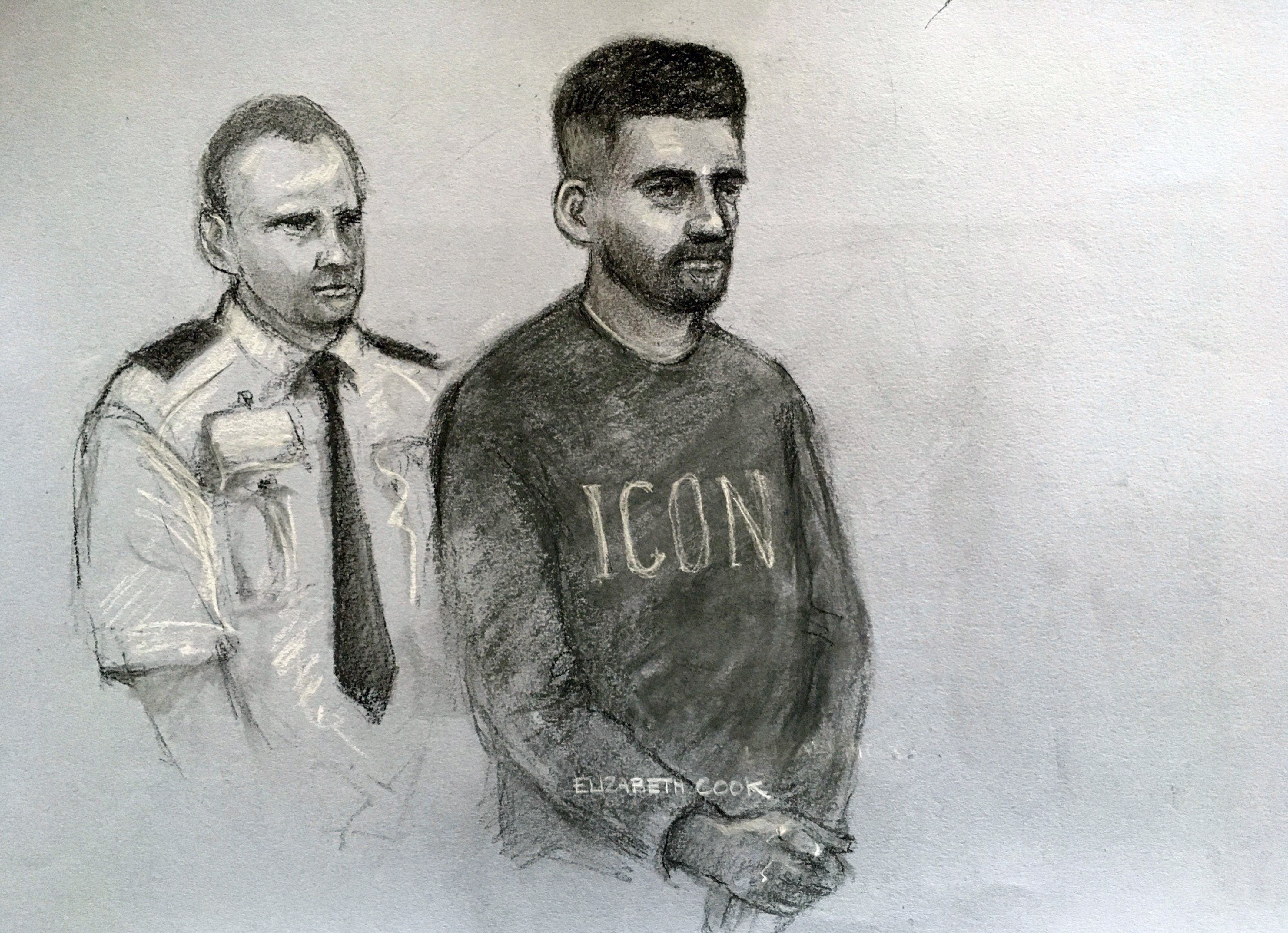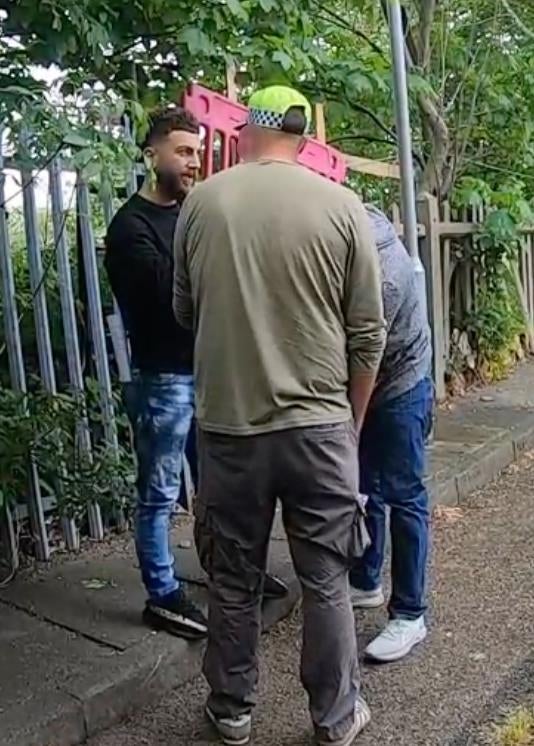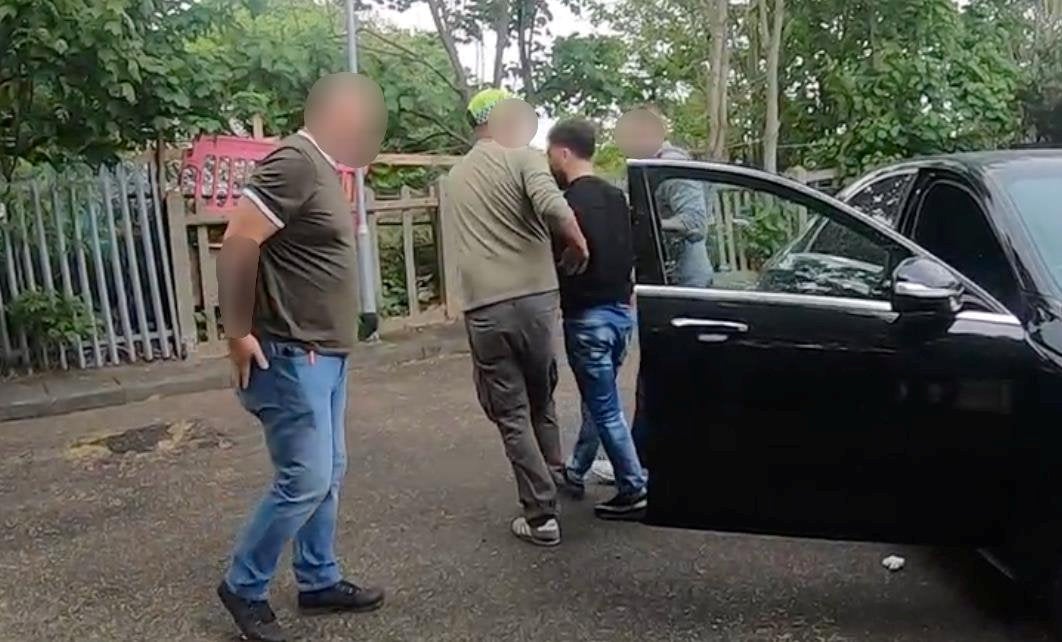Kiosk owner who sold sweets unmasked as kingpin who smuggled 10,000 migrants to Britain in small boats
Hewa Rahimpur’s modest life hid his dark secret as a “high ranking” member of a criminal network who sourced boats for life-threatening Channel crossings, writes crime correspondent Amy-Clare Martin


To his neighbours, Hewa Rahimpur appeared to live a simple life, selling sweets and tobacco from a kiosk in east London.
Locals described the 30-year-old who lived modestly in Ilford as “like gold”; a popular guy who was friendly and “nice to everyone”.
But he was living a double life as a people trafficking kingpin, whose pan-European criminal network masterminded the arrival of 10,000 migrants in perilous small boat crossings.
His former landlady said she struggled to believe it when he was unmasked last summer. She said “it was shocking for all of us” when he was dramatically arrested by the National Crime Agency near Wanstead Park, east London, in a joint operation with Belgian authorities.
He was later extradited to Belgium to stand trial as a “high-ranking” member of a 20-strong trafficking gang. The gang sourced inflatable boats and outboard motors, as part of an operation that sold spaces for life-threatening Channel crossings for up to £6,000 per person.
The gang was responsible for bringing some 10,000 desperate migrants to British shores, the NCA estimates.
On Wednesday, Rahimpur was jailed for 11 years at a court in Bruges for his part in the ring, which is said to have sourced boats in Turkey and southern Europe and engines from China, before driving them to northern France.
Another 19 people were convicted alongside him and handed jail terms of between 30 months and eight years.
The investigation began following the seizure of a number of boats and outboard motors, found by Belgian police in the back of two cars near the Belgian-French border in October 2021.

Phone analysis showed the drivers had been in contact with a UK-based phone number, later found to be Rahimpur’s, exchanging messages about boat movements and locations for delivery.
According to the NCA, a total of 135 boats, 45 outboard engines and more than 1,200 life jackets were seized as law enforcement across Europe swooped on people smugglers in a joint operation in Germany and the Netherlands last summer. Some 60 boats and 900 lifejackets were found at a farm in Osnabruck, Germany, linked to Rahimpur’s network.
“We are trying to disrupt the supply chain – no rubber boats, no engines, no crossings,” NCA deputy director Craig Turner said of the case.

“We did see a decrease in 2022 [of crossings] as a result of the arrest and the dismantling of some of that network.”
Rahimpur admitted handling payments for the network but denied being a leader. He is an Iranian Kurd who arrived in Britain seeking asylum in 2016. He was granted leave to remain in the UK four years later and ran a barber shop with a friend in Lewisham before he moved to east London.
Despite criminal gangs raking in an estimated £175,000 to £230,000 per crossing, on his arrest last summer officers said he did not appear to live a life of overt luxury.
“He didn’t have an excessive life when we actually went into his premises although he was just buying a very expensive car,” explained senior investigating officer Kate Philpott. “After he was arrested he claimed he had a partner and child although we never saw any evidence of that.”

Footage from last May shows NCA officers pulling him out of a black Mercedes saloon wearing blue jeans and a black jumper, before reading him his rights.
He was linked by financial transfers to the gang’s activities, advertising his services as a “hawaladar”, a type of financial broker or middleman, on social media sites, including Facebook.
Mr Turner said disrupting people smuggling was the NCA’s “highest priority”, with 90 operations, both “covert and overt”, ongoing to disrupt immigration crime.
“Rahimpur’s network at the time of his arrest [made him] one of the most significant individuals running criminal groups involved in crossings. We estimate that his network was involved in smuggling around 10,000 people into the UK. At one point this was around 10 per cent of all crossings across the channel,” he said.
“These individuals are largely treated as a commodity; that is the business model that Rahimpur and his gang decided to profit from. These criminal networks don’t care about the safety of those that they are paid to transport. They are paid to put them in extremely dangerous and life-threatening situations.
“It was a moneymaking operation. They didn’t care about the quality of the equipment they provided or the safety of the people on the boats.”

Hundreds of migrants have drowned attempting to make the dangerous journey across the Channel in small boats, including at least 27 who died making the crossing in November 2021. However, investigators did not link Rahimpur’s network to any fatalities.
Ms Philpott said law enforcement officers were seeing people smugglers taking “bigger risks”, with larger or lower-quality boats filled with more people and no lifejackets.
“Sometimes the quality of those boats has reduced, putting these individuals at bigger risk. Individuals really crammed onto these boats with bigger risks. Going on to the boats without actual lifejackets,” she said.
“Originally, when Rahimpur was arrested they were charging between £3,000 and £6000 per person. Now, it has changed to between £2,000 to £4,000 and that’s because they are now seeing up to 80 on each boat.”
She added: “The worst conditions I have seen are 80 people on a boat which was so low in the water that it looked like a raft. The majority of people had no lifesaving equipment. A couple of people had rubber rings and some insides from tyres.”



